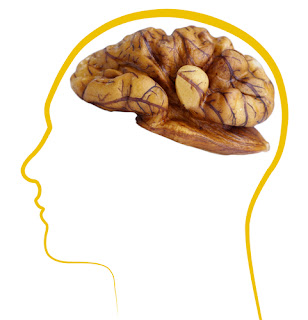 Mind training takes place 24/7 due to a barrage of stimuli that settles in our minds. We do not have control over a greater percentage of it. It is essential to be cognizant of what causes it and be able to monitor and take control of that which we can.
Mind training takes place 24/7 due to a barrage of stimuli that settles in our minds. We do not have control over a greater percentage of it. It is essential to be cognizant of what causes it and be able to monitor and take control of that which we can.Infants come in touch with a lot of information that their minds must be able to organize then understand. This type of mind training takes place automatically – using the faces we see, sounds we hear, the voices we get to hear and the tones of these voices and their meaning. We do not have control over this initial mind training. When early development occurs in an enriching environment and in accordance with well developed natural order, it proceeds in a manner that effectively supports growth and development later on.
Several direct forms of mind training also start early. Parents deliberately portray certain information and experiences, and establish opportunities and experiences. At very initial stages, age mates also determine what is learned. We go to school, get coaching and receive artistic tuition to deliberately attain mental training.
Incidental mind training continuously occurs as we live. Things that we had not sought out just pop out and we proceed to learn from them. This kind of mental training is normally the main source of phobias and fears including those amazing experiences that give us a better understanding of the world and elevate some to greatness.
Intentional mind training is for the people who have lives that at are most satisfying and successful. They set goals, develop interests and learn what is essential in supporting those things. Someone may choose to set his mind on becoming a teacher, a musician, a doctor, a beautician or a writer. One may also decide to learn more about sewing, fishing, dancing, crafting, hunting and parenting. These endeavors are all forms of intentional mental training.
There is a unique type of brain training that relates to the modification or improvement of the mind’s functions. A good example that falls under this category is happiness. Social workers, counselors, psychologists and psychiatrists dedicate their professional lives to providing the types of mind training that helps people to become more competent, effective and happier. When we first hear of the phrase mind training, what comes into our mind is working in order to influence the basic functions of the brain through brain games.
This type of mind games normally focuses on adjusting negative mind training that occurred in other ways such as incidental, directly from others and automatic. When an infant begins to learn that the world cannot be relied on to keep him cool and warm as required, that it lets him stay messy and wet, that it lets him to be hungry and that it causes physical pain to him, the platform has been set early enough to grow the child into a maladjusted person. The early training was detrimental to his later stages in life. The training becomes harmful at the single acquisition of fear.
Several direct forms of mind training also start early. Parents deliberately portray certain information and experiences, and establish opportunities and experiences. At very initial stages, age mates also determine what is learned. We go to school, get coaching and receive artistic tuition to deliberately attain mental training.
Incidental mind training continuously occurs as we live. Things that we had not sought out just pop out and we proceed to learn from them. This kind of mental training is normally the main source of phobias and fears including those amazing experiences that give us a better understanding of the world and elevate some to greatness.
Intentional mind training is for the people who have lives that at are most satisfying and successful. They set goals, develop interests and learn what is essential in supporting those things. Someone may choose to set his mind on becoming a teacher, a musician, a doctor, a beautician or a writer. One may also decide to learn more about sewing, fishing, dancing, crafting, hunting and parenting. These endeavors are all forms of intentional mental training.
There is a unique type of brain training that relates to the modification or improvement of the mind’s functions. A good example that falls under this category is happiness. Social workers, counselors, psychologists and psychiatrists dedicate their professional lives to providing the types of mind training that helps people to become more competent, effective and happier. When we first hear of the phrase mind training, what comes into our mind is working in order to influence the basic functions of the brain through brain games.
This type of mind games normally focuses on adjusting negative mind training that occurred in other ways such as incidental, directly from others and automatic. When an infant begins to learn that the world cannot be relied on to keep him cool and warm as required, that it lets him stay messy and wet, that it lets him to be hungry and that it causes physical pain to him, the platform has been set early enough to grow the child into a maladjusted person. The early training was detrimental to his later stages in life. The training becomes harmful at the single acquisition of fear.























